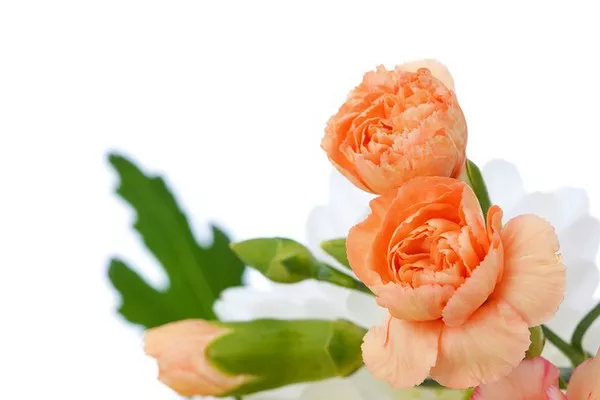Carnation plants (Dianthus caryophyllus) have long captivated garden enthusiasts and floral enthusiasts alike with their vibrant colors and sweet-spicy fragrance. These perennial beauties are renowned for their longevity, making them a popular choice for both gardens and cut flower arrangements. In this article, we will explore the fascinating lifespan of carnation plants, shedding light on their environmental needs, care practices, and various factors that contribute to their longevity.
See Also: The Lifespan of Air Plants: Exploring Factors that Influence
The Carnation: An Overview
Carnations belong to the Caryophyllaceae family and are native to Eurasia. They have been cultivated for centuries, with their use dating back to ancient Rome and Greece, where they were used in garlands and wreaths. Over the years, carnations have been bred into a variety of colors and forms, including standard carnations, spray carnations, and miniature or dwarf carnations.
Lifespan of Carnation Plants
One of the most appealing characteristics of carnation plants is their long lifespan when properly cared for. On average, carnations can live for three to five years, although some have been known to thrive for up to a decade or longer. The longevity of carnations largely depends on various factors, including environmental conditions, care practices, and the specific cultivar.
Environmental Factors
1.Climate: Carnations are native to temperate regions, and they thrive in climates with mild summers and cool winters. They are often grown as annuals in regions with harsh winters or scorching summers. In more favorable climates, they can live longer as perennial plants.
2. Soil: Well-draining soil that is slightly alkaline (pH 6.0 to 7.5) is essential for the health and longevity of carnations. Rich, loamy soil with good fertility will provide the necessary nutrients for sustained growth.
3. Sunlight: Carnations are sun-loving plants. They require at least six hours of direct sunlight per day to thrive. Inadequate sunlight can lead to weakened plants with shorter lifespans.
4. Watering: Overwatering or allowing the soil to become waterlogged can be detrimental to carnation plants. Consistent, moderate watering, with the soil kept slightly moist, is ideal. Avoid watering the foliage, as this can lead to diseases that reduce plant longevity.
Care Practices
Pruning: Regular deadheading and pruning of spent flowers can extend the lifespan of carnations. This practice encourages new growth and prevents the plant from expending energy on seed production.
Fertilization: Carnations benefit from regular fertilization during their growing season. A balanced, slow-release fertilizer can provide the necessary nutrients for healthy growth and longevity.
Mulching: Applying a layer of organic mulch around the base of the plant helps conserve moisture, regulate soil temperature, and prevent weed competition, all of which contribute to the plant’s overall health and longevity.
Pest and Disease Management: Carnations are susceptible to certain pests and diseases, such as aphids, spider mites, and rust. Regular monitoring and prompt treatment can help prevent these issues from affecting the plant’s lifespan.
Cultivar Variations
Different cultivars of carnations may have varying lifespans. Some cultivars are bred specifically for their longevity, while others may prioritize other characteristics like flower size or color. When selecting carnation plants for your garden or cut flower arrangements, it’s essential to research the specific cultivar’s characteristics, including its expected lifespan.
Factors Affecting Carnation Lifespan
Growing as Annuals vs. Perennials: In regions with extreme climates, gardeners often treat carnations as annuals, replanting them each year. However, when grown as perennials in suitable conditions, they can live much longer.
Disease Resistance: Carnations that are resistant to common diseases, such as carnation rust, can enjoy a longer lifespan. Choosing disease-resistant varieties can be beneficial.
Environmental Stress: Extreme weather conditions, such as prolonged droughts or severe cold snaps, can shorten the lifespan of carnations. Providing protection during harsh weather can help extend their life.
Soil Quality: Poor soil conditions, including soil that is too compacted or lacks essential nutrients, can hinder the growth and longevity of carnations.
Competition with Weeds: Weeds can compete for resources and limit the lifespan of carnation plants. Effective weed control measures can help extend their life.
Conclusion
Carnation plants are renowned for their longevity when provided with the right environmental conditions, care practices, and cultivar selection. With an average lifespan of three to five years, these perennial beauties can grace your garden or floral arrangements for an extended period. By understanding and addressing the various factors that impact their lifespan, you can enjoy the enduring elegance of carnations year after year. Whether you are a seasoned gardener or a novice enthusiast, cultivating carnations can be a rewarding experience, marked by the enduring beauty of these resilient flowers.


